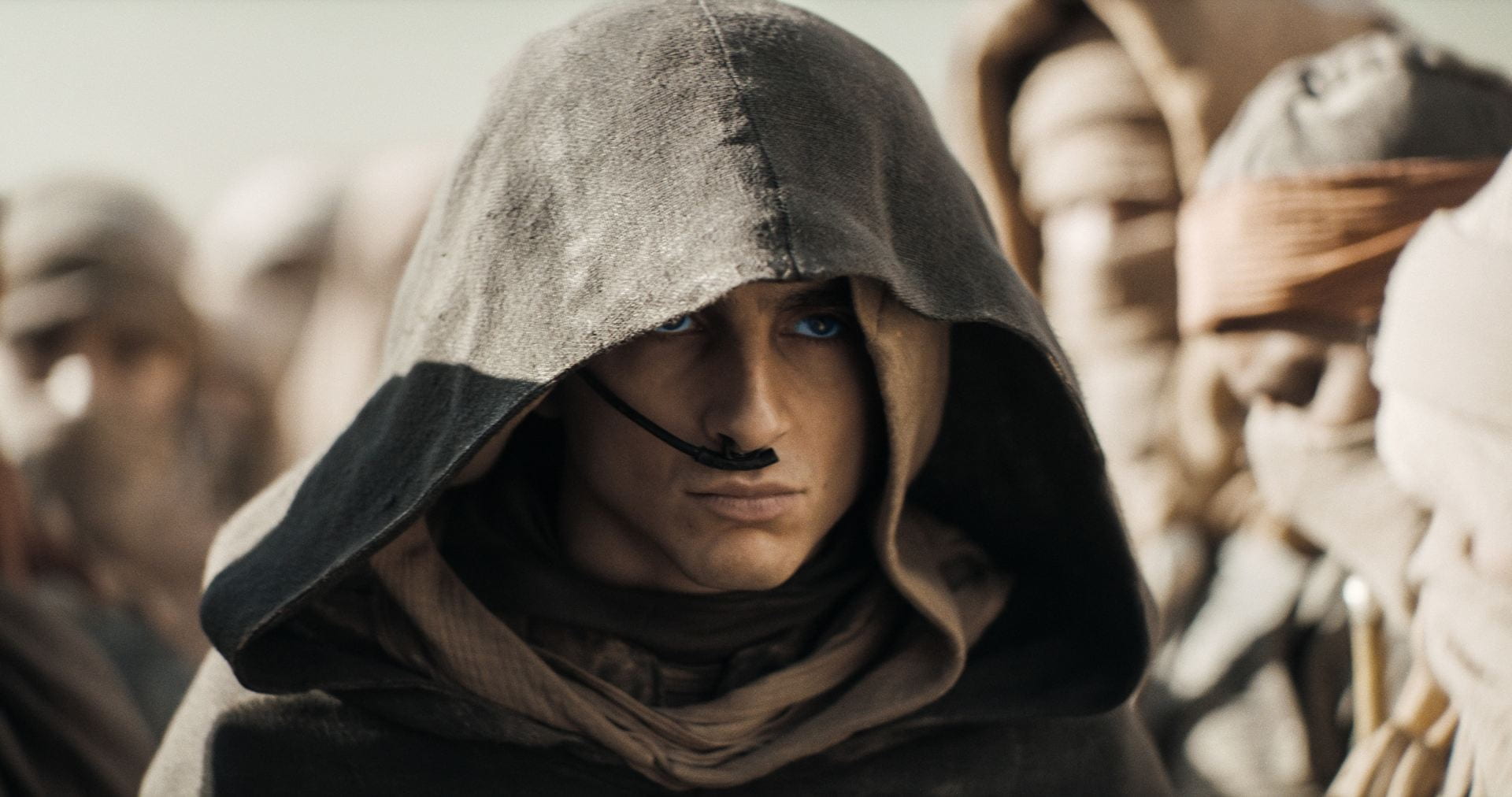There may be a universe out there where I did not read Dune as a novel before seeing the Denis Villeneuve adaptations, and I imagine that universe's me (probably a less nerdy version) wouldn’t have had quite the ebullience that real me had for Part One. Part One, I suspect, would have felt a little random and underwhelming—an incomplete story that ends arbitrarily after a swiftly decided fight. Other Me may have compared it to watching a very good comedian set up a joke, only to have to wait multiple years for the punchline.
In this universe, though, I thought Part One was incredible. It was as if they'd lifted the scenes from what I’d had in my brain while reading and made them even cooler—a rare adaptation that was truly additive. Sure, it skirted some of the political machination and some not-that-good Gurney song lyrics, but the visual realization more than made up for it.
Now that we have both parts, I found myself again wondering what Other Me me would think. Does this movie finish the story, seal the deal, and make me love it? Or am I still confused by what this “spice melange” is and why the Baron floats but other Harkonnens don’t and the what the intentions are of these creepy women with the tall hats? I guess I’ll never know. All I can tell you is that, in this universe, I am deeply, deeply satisfied.
Part Two follows young Paul Atreides (Timothee Chalamet) through his transformation from brown-eyed young heir of his fallen House to blue-eyed military leader for the Fremen, the indigenous people of Arrakis. He must learn the ways of his new people and adjust to life in the desert, fending off (well founded) suspicion from some outsider-skeptic individuals. He also finally gets with the literal girl of his dreams in Chani (Zendaya), who grows to love him even if she doesn’t quite buy that he’s the Chosen One like some of her fundamentalist comrades do. Paul seems fine with that, though. He doesn’t seem to want that job and does not enjoy the visions he keeps having of his actions leading to millions of deaths in a holy war. It's a heavy burden for any Paul.
Speaking of deaths, they occur on different levels in this world. There’s the body-doesn’t-work-anymore kind, of course, but there are also deaths of the soul: people are “born again” one might say, with a new identity. Spirituality and religion play a huge part in this film, and the film’s writers seem to lean into that aspect, even fabricating a fundamentalist schism among the Fremen that isn’t really present in the novel. Still, all Fremen, fundamentalist or not, are deeply tied to tradition and have great respect for their reverend mother and their sacred waters. Their Harkonnen antagonists, conversely, are portrayed as marshmallow-complected secular industrialists.
The big “set pieces,” most of them having to do with worms the size of the Willis Tower, are, as one would expect, mind-blowing. They will live on for many years to come as little filmmaking masterclasses. But set pieces are set pieces. What makes this movie really special is the attention to small details: a helmet visor instantly darkens when the sun gets low; Sardukar forces ascend a mountain with slick levitation technology; a pulsating sand-snorkel pokes just out of the where a Fremen is waiting to attack. It’s all just so brilliantly executed.
The performers have a difficult job: avoid being dwarfed by this movie. Not only is this movie’s source material one of the most revered genre books of all time, the non-human entities in the film itself are so massive and fascinating that their presence risks diminution of the human characters. I’m guessing this is why the film required so many actors with gravitas: Charlotte Rampling, Josh Brolin, Javier Bardem, Stellan Skarsgard, and Rebecca Ferguson do really well to hold their own. The younger actors are also good, but, with the exception of Austin Butler, don’t leap off the screen. That’s okay in this case. There’s plenty to look at.
